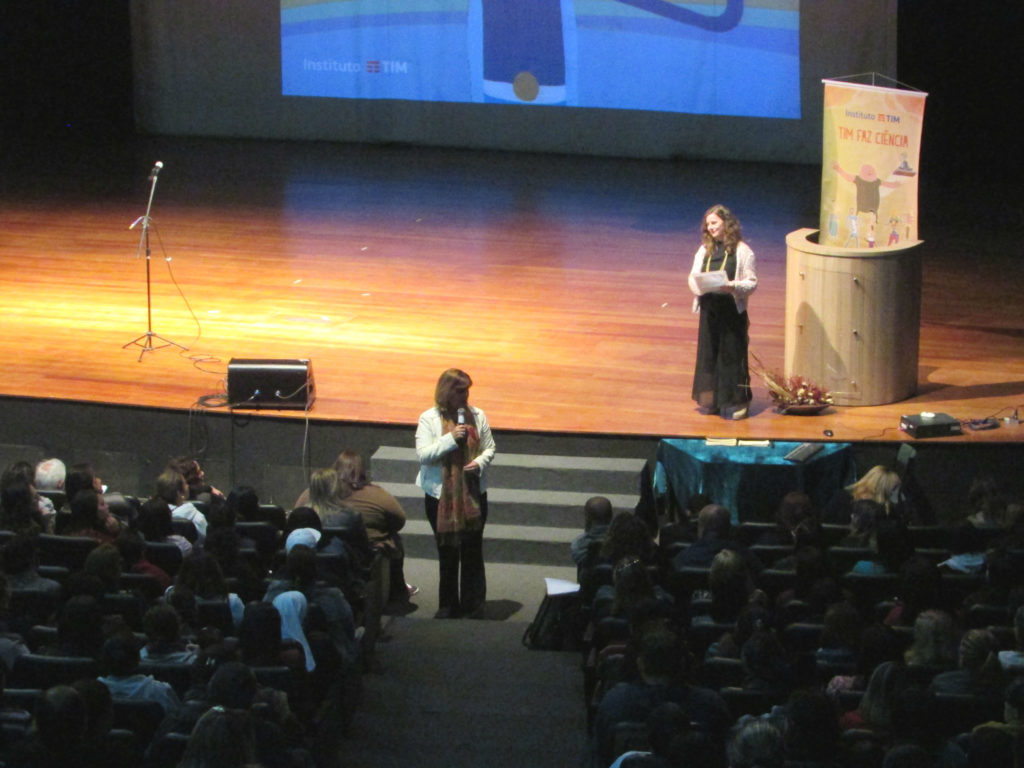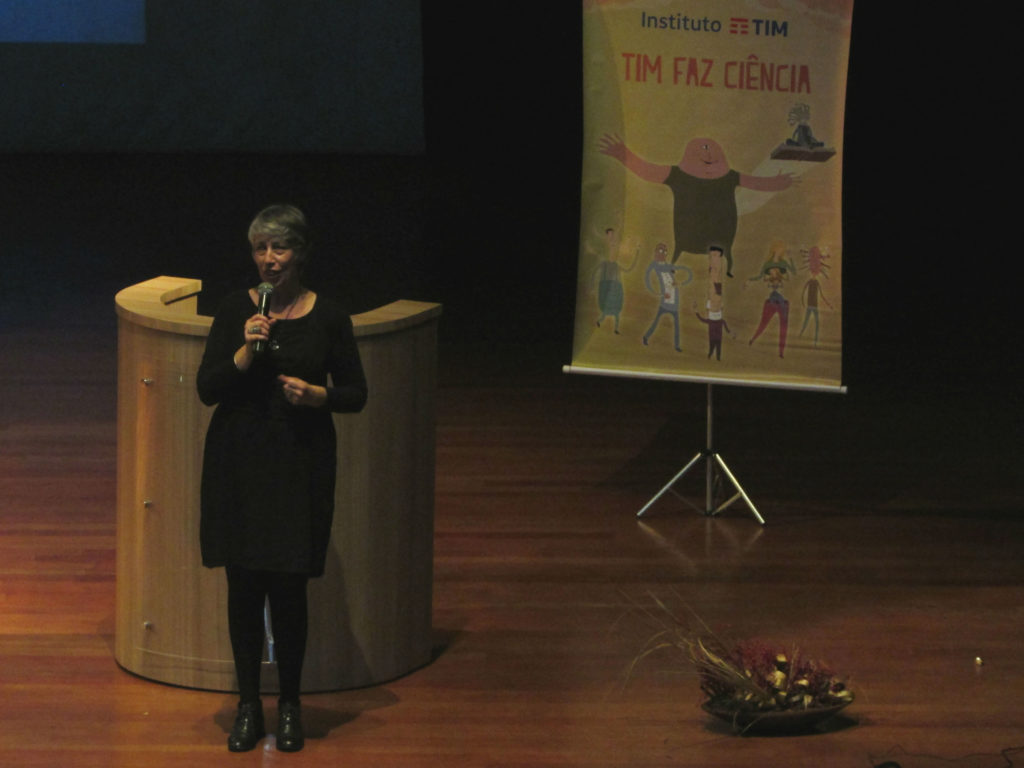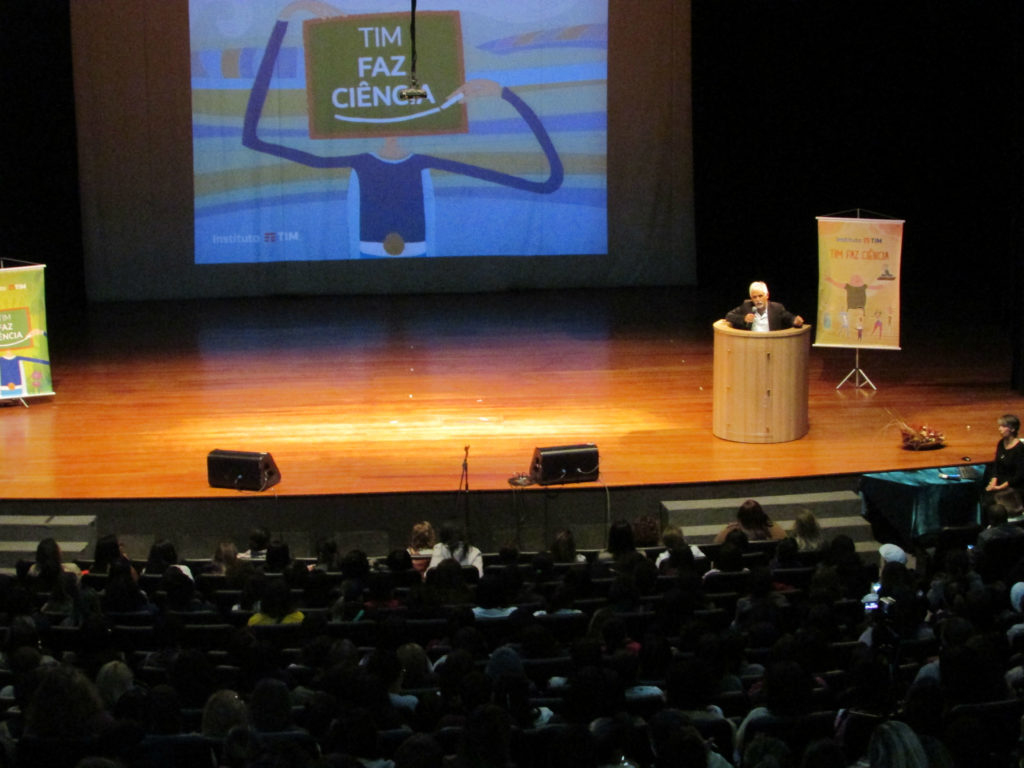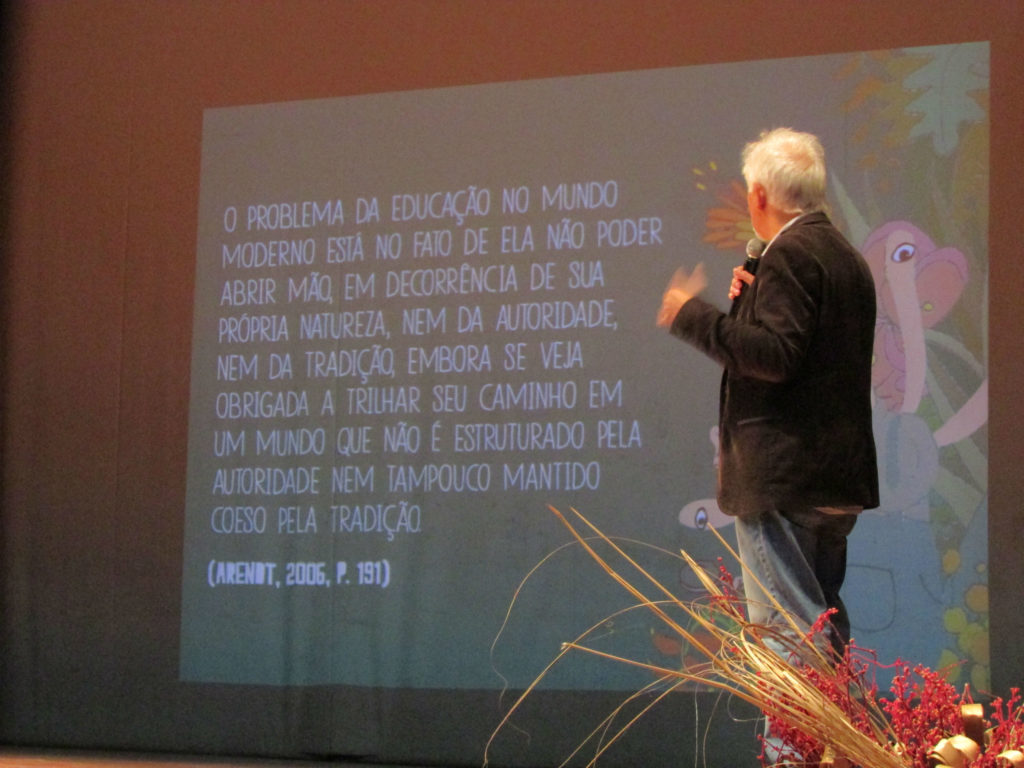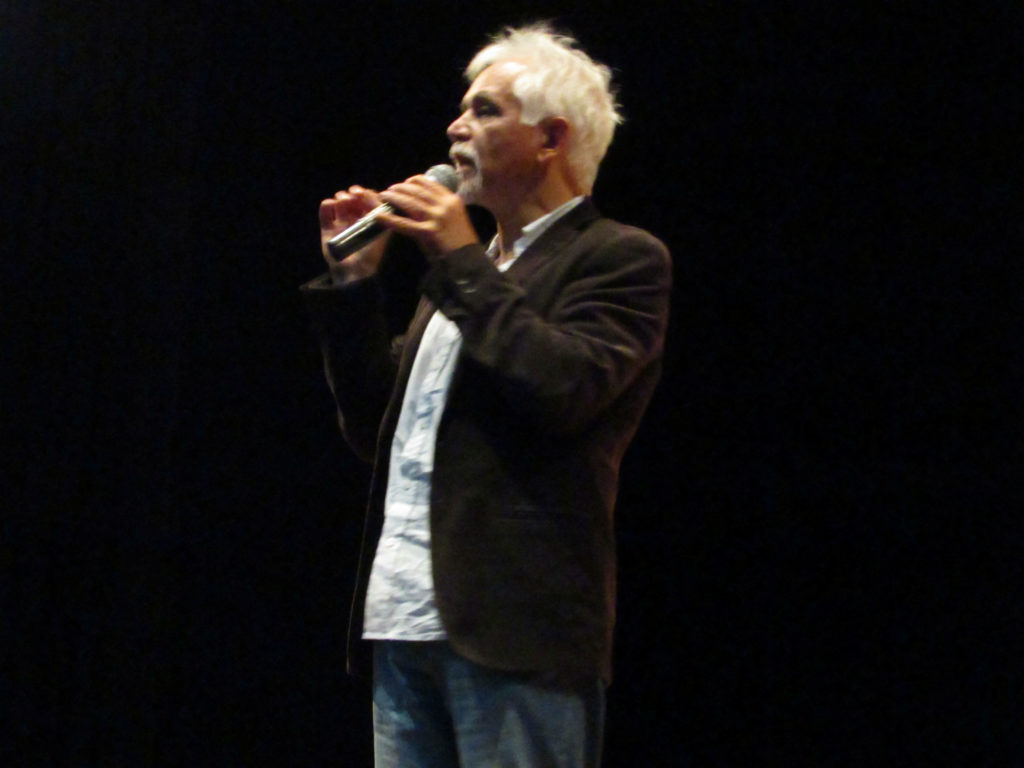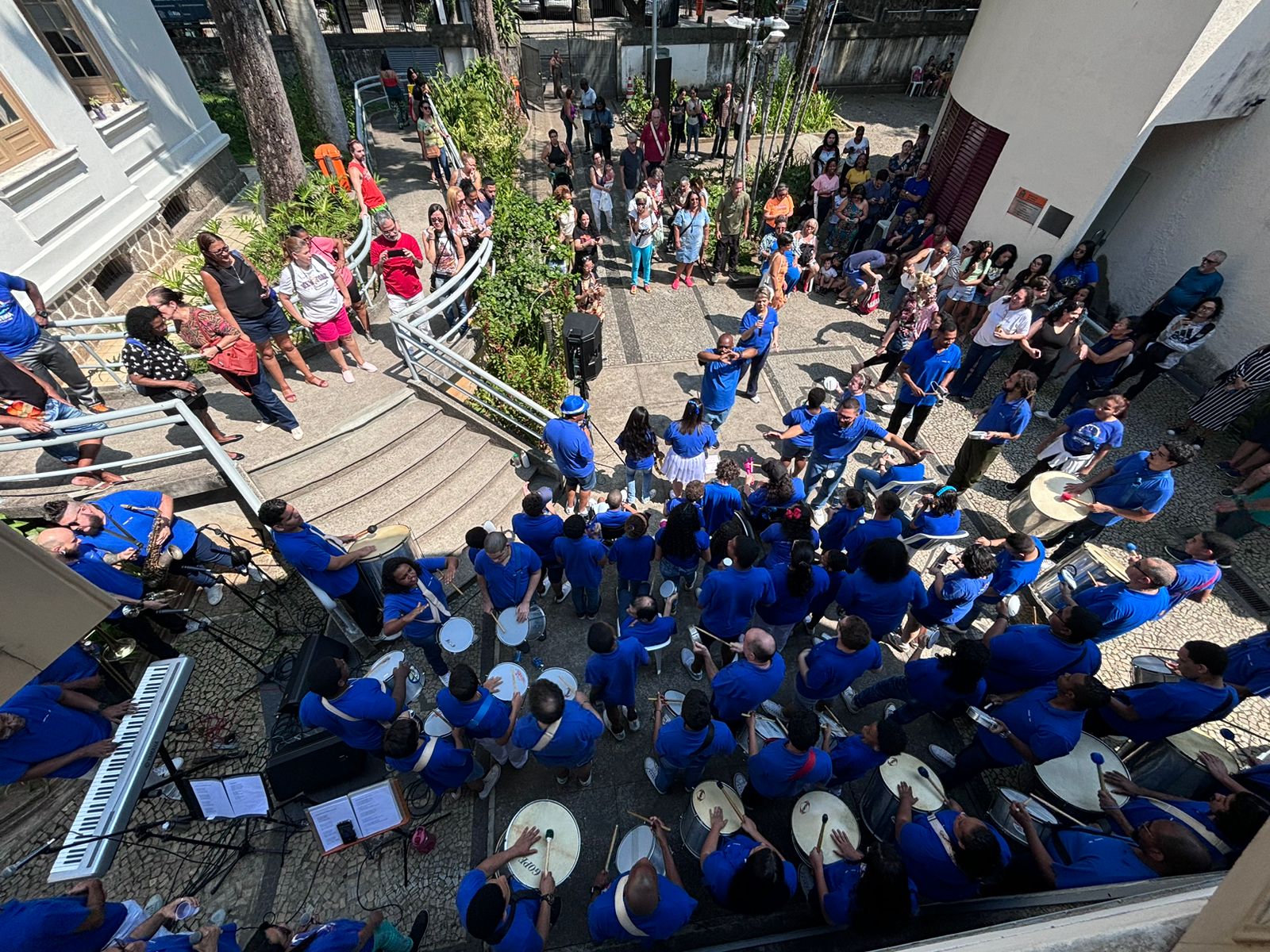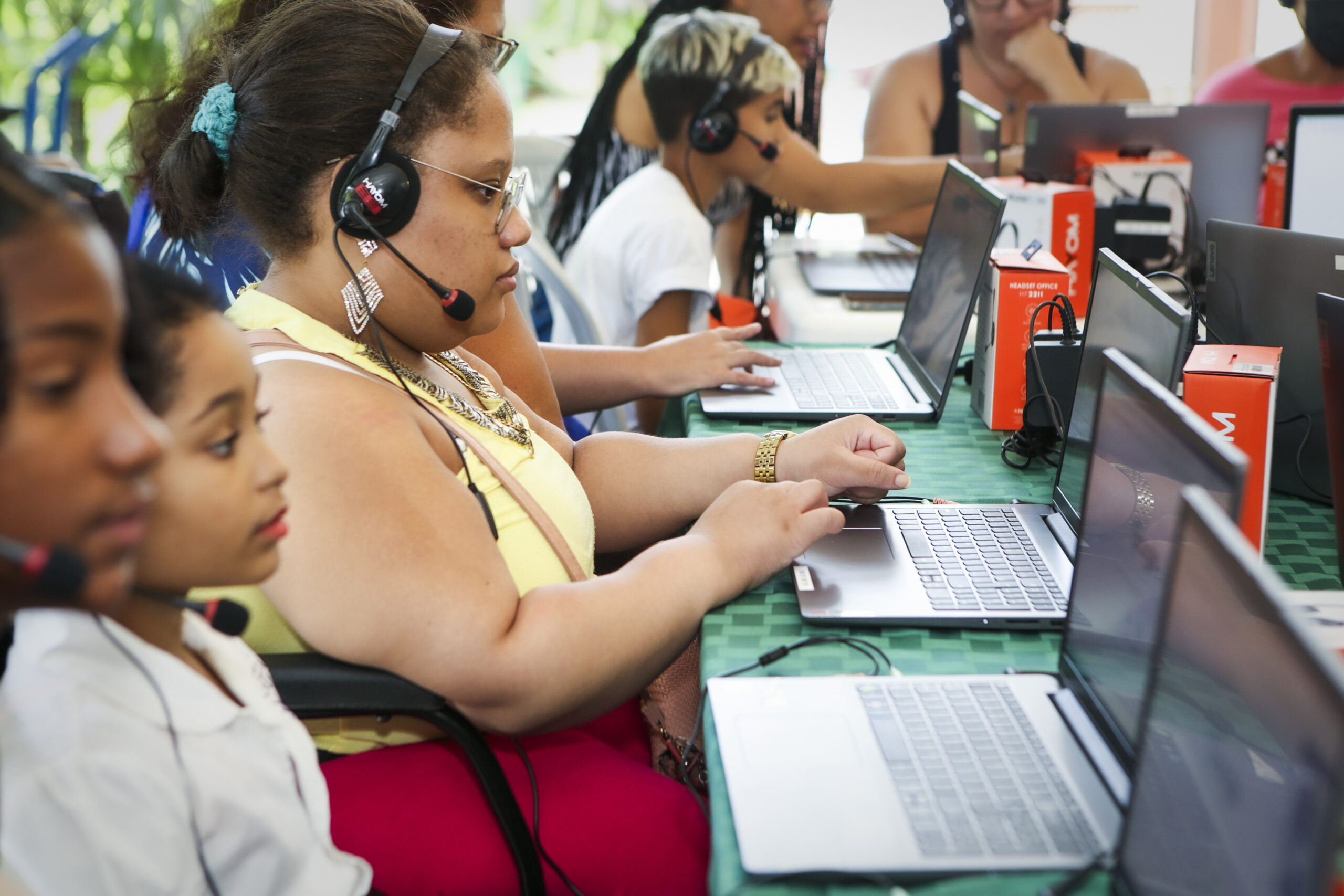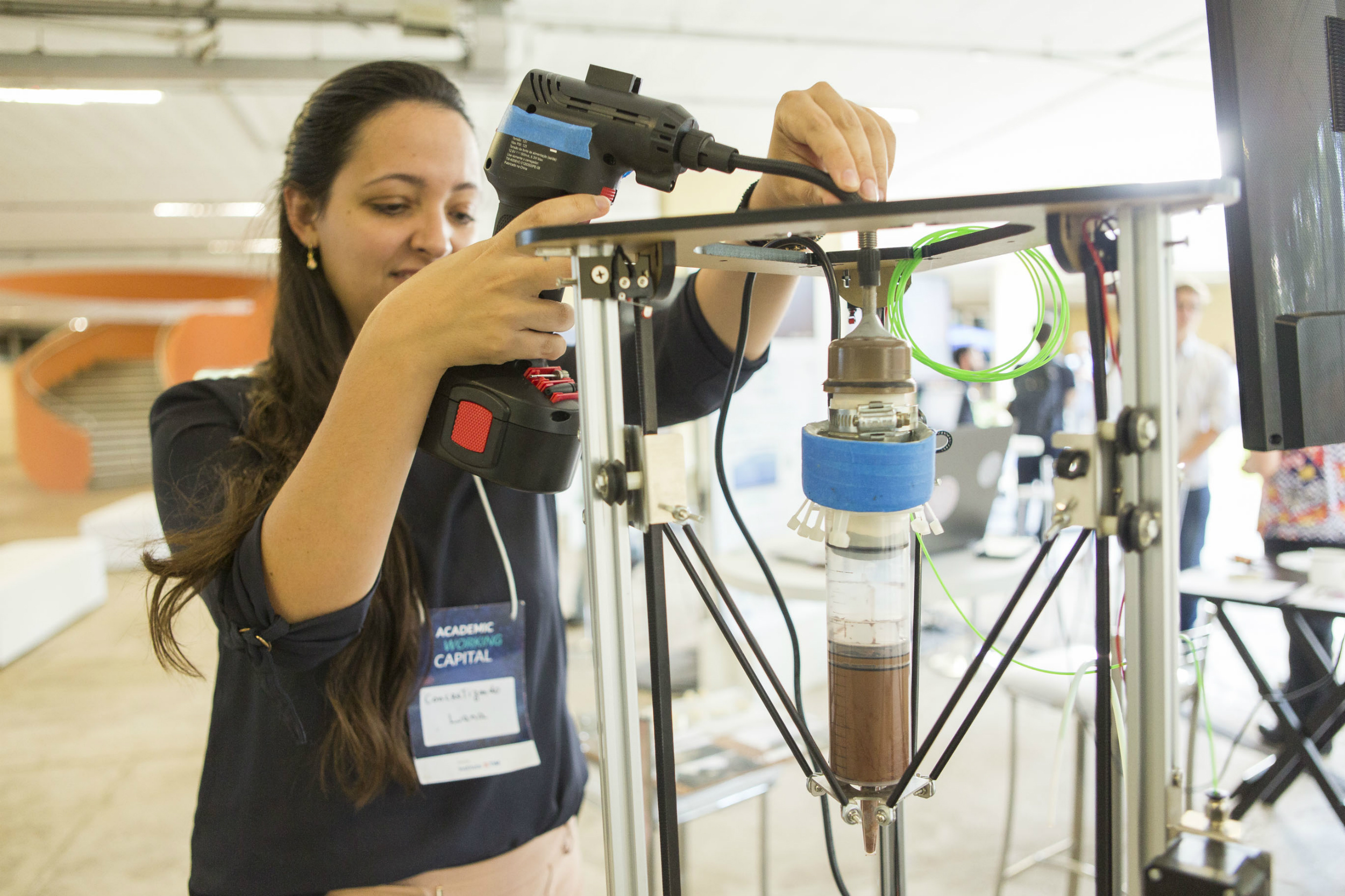
The first day of the seminar Territórios de Aprendizagem (Learning Territories), promoted by the Municipal Department of Education of São Bernardo do Campo (SP), had a lecture from the program TIM Faz Ciência. Professor José Sérgio Carvalho, lecturer in Philosophy of Education at the University of São Paulo (USP) and one of TFC’s trainers, delivered a speech for about 1.500 teachers, coordinators and principals of municipal schools about the theme “The authority’s position in pedagogical relations”. The event took place on September 21st at Ruth Cardoso Training Center for Education Professionals (CENFORPE).
The lecture had the presence of the city’s assistant secretary of Education, Stella Chicchi, and was introduced by professor Lilian Faversani, expert in Psychoanalysis and Childhood and also a TFC’s trainer. José Sérgio analyzed the meaning of words “tradition” and “authority” to reflect on how they are inserted in contemporary education. He had as a starting point a quote from the German philosopher Hannah Arendt which says that the education cannot let authority and tradition go, even though the modern world context is not structured by these concepts.
José Sérgio showed that both words carry meanings in their origin that are essential to education. “Tradition is that strong belief we have that our ancestors know something that should be transmitted to the following generations. And our task is to transmit this, which we consider valuable, to the next generation. We cannot educate without tradition”, he stated.
The professor mentioned ambiguities that exist in our vision of what authority is and gave examples to demonstrate how it differs from strength, domain, order, coercion and legality. “The relationship of authority is founded on the idea of trust”, he explains. “These children come to our world and they have in front of them an extremely complex and difficult to understand world. Having an authority in the teacher means that this kid needs to trust that, in this huge confusion we live in, somebody is able to take their hand and teach where they can walk and where they cannot walk”, he said.
José Sérgio added that this relationship of trust is mutual and that it does not prevent the kid’s autonomy, on the other hand: it is a complementary condition so that they can make their own choices from experiences and examples they learned. After the lecture, the audience made questions and comments, approaching subjects like misbehavior in the classroom, the importance of providing authority to all the school staff and which should be the parents’ view on school authority. The seminar Territórios de Aprendizagem happens until September 23rd.
TIM Faz Ciência is present in São Bernardo do Campo since 2014. This year, 260 teachers and 2.415 students from 90 municipal schools are participating. In 2015, a teacher from the city, Suelen de Araújo Santos, was among the winners of TIM Faz Ciência Award.
